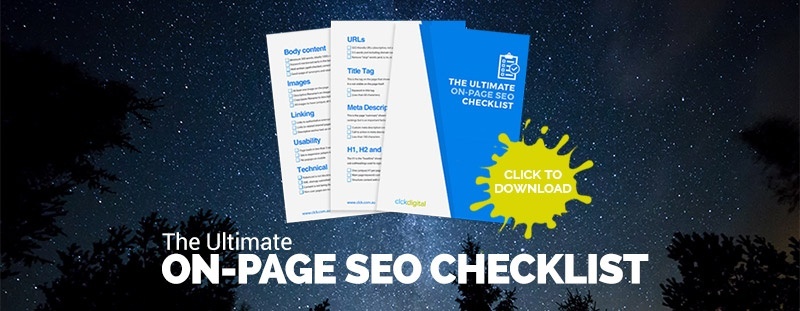If you’re considering hiring a new SEO agency or you’re already working with one and want to know if they’re doing a good job, there are some questions about their approach that you might want to ask.
There are a lot of smoke and mirrors in the SEO industry.
It can be hard to sort through all the noise and find out if your agency is going to get you results, or waste your money.
And when we’re talking about a 6-12 month investment of time and money, making a mistake here can he very costly.
In this post we’ll cover 10 of the top questions you should ask your SEO agency or consultant to get insights on whether they really know what they’re doing, or if they’re taking you for a ride.
This is not an exhaustive list, and you should of course do all your usual due diligence when hiring a service provider, but from an SEO perspective, these questions should give you a good indication about the agency’s level of competence.
Here are the 10 questions to ask your SEO agency.
1. Who creates our SEO content?
There’s no getting around the fact that SEO today requires content. Whether it’s optimising the content on your existing site pages, or creating new content and pages that you’ll be trying to rank, you’re going to need well-written, compelling content.
This is not just to rank well, but just as importantly it’s crucial to convert people who arrive on those pages into sales or enquiries.

With that in mind, it’s important to ask your SEO agency what their plan is for sourcing this content. Some agencies will have in-house writers that produce content for you, while others will just provide you with content briefs you’ll need to take to a writer and have produced.
There’s no real right or wrong answer here, but if the second option is true, you’ll need to factor in the cost of hiring a writer to produce your content, which can get expensive.
2. Who makes the technical SEO changes to our website?
Along the same lines as who will produce content, you need to clarify from the outset with your SEO agency who will make the technical changes to your website. One of the first things we look at when starting with a new client on SEO is their existing website and what fixes they need to lay the foundations for strong rankings.
Things that need to be addressed on the website include:
- Site speed
- URL structure
- Title tags
- Meta descriptions
- Mobile usability
- Image size, file names, descriptions, and alt text
- Schema markup
- HTTPS/SSL (site security)
- XML Sitemap structure
While the above list is just the bare basics, getting these elements working correctly will require the help of a web developer who understands the basics of SEO. They’ll need to be in your CMS and fixing this stuff so your pages have the highest potential for ranking.

Just like with the writing example above, there’s no real right or wrong on whether it’s your job or the SEO agency’s, but again you need to know from the outset if you’ll have to source a developer to make the on-site technical changes required for correct SEO. Otherwise, you might be in for a nasty shock when your SEO agency hands you a list of things to do that will require hours of work from a web developer.
3. How do we get links to fuel SEO?
Your SEO agency should make it clear from the outset that in order to rank your website on Google or other search engines, you’ll need a strategy for getting other websites to link back to your site.
Backlinks are still the single most important ranking factor that Google’s algorithm uses to figure out if your website is a trustworthy authority in your industry. This makes sense, because no matter what you do on your own site, it’s where you fit in relation to other sites in your industry – the relationships you’ve built over time – that tells Google about the quality of your site, and the best way for them to measure this is using the number and quality of backlinks.

So as we’ve seen, any SEO project needs to have a link-building strategy as an integral part of the overall approach.
Many agencies will gloss over this question and hope it never comes up, because it’s one of the most hotly debated topics in SEO. There are lots of ways to get backlinks, some widely accepted as being minimum requirements, some seen as a grey area, and others widely regarded as being spammy and risky, or simply ineffective.
For example, if your SEO agency says something like “we don’t do any active link building, we rely on the content to rank because it’s so well written”. This would be a huge red flag and would show you’re not actually hiring an SEO agency, you’re hiring a content agency that doesn’t have a lot of actual knowledge of how SEO really works.
If they said something like “we manually create social and directory profiles for you on hundreds of local and industry directories, each with a link back to your site”, this would be a little more encouraging, but still not likely to move the needle very much as most of these links are fairly low quality and easy to get. This is the bare minimum we would do in the first month or two of working with a client.
A great answer to this question is something like:
After we’ve achieved all the ‘low hanging fruit’ links such as citations from directory profiles, we analyse the top 10 websites in your industry to see what sites are linking to them. Then we try to get links from as many of those sources as possible, because we know they’re effective. While this is happening, we’re also doing PR and outreach to authority sites in your industry and offering them incentives to link to relevant content pieces we’ve created on your website. Finally, we’re constantly looking for opportunities to get you mentioned on other websites using natural contextual links back to your website.”

You ideally want to have a balance of link sources, avoiding having all your eggs in one basket and instead having a natural and robust link profile. For best results you want a mix of all the above sources, if possible.
Some of the grey areas I mentioned above include things like PBNs (private blog networks, where SEOs build up a network of their own sites to create links for clients), buying links from other websites (i.e. paying the site owner to place a link to your site on their site), and link exchanges (placing a link on your own site for a link from another site). There’s no denying these strategies actually work (otherwise why would Google keep telling people not to do it?!), but the drawback is that most times, once you stop paying the agency or webmaster, the link goes away, making your rankings drop accordingly. And there’s always a chance that an algorithm update will penalise these types of links and your rankings will go down the toilet.
4. What SEO tools do you use?
There are dozens of SEO tools out there. Some of the more popular ones include:
- Ahrefs
- Semrush
- Moz
- SE Ranking
- Screaming Frog SEO Spider
- Google Search Console
- Google Analytics
- Buzzstream
- UberSuggest
- SpyFu
- ContentKing
While there’s some overlap between these various tools, many of them play an important role in routine SEO tasks such as keyword research, backlink analysis, domain authority, and competitor analysis.

Like many of the questions in this article, there is no real right or wrong answer, you’re mostly looking for a sign that your SEO agency has a process in place and uses the right tools to carry out this process. If they rely too heavily on one or two tools then it might be a sign they’re neglecting some aspects of your SEO.
5. What are some SEO results you’ve achieved for clients?
Possibly the most important question on this list, before you pay thousands of dollars to an SEO agency, you want to make sure they can actually achieve the results they’re promising! The easiest way to do this is to look at their past performance.

Ensuring they have SEO case studies and testimonials on their website is the first step, but then dig deeper into past results, including asking to talk to previous or existing clients so you can get a feel for what they’re like to work with.
Along the same lines, you could consider asking about projects that haven’t gone so well. No business (including a marketing agency) is perfect, so there are always going to be situations where the outcomes on a project were not what was expected, but hearing how the agency talks about this and what they learnt from the experience should give a good indication of their overall mindset.
It’s also crucial to check if the agency has experience within your industry. If you work in a complex and nuanced niche, there might be a steep learning curve to understand your offer and audience, which not all agencies are prepared for. They’re thrilled to sign you on as a client at the drop of a hat, but then it soon becomes apparent that they don’t really “get” what you do and who you do it for, which will hamper their ability to get good results for you.
6. What services do you provide other than SEO?
Imagine you’ve just been diagnosed with a brain tumour. You need surgery to remove it. Would you rather have a general surgeon do this surgery, or a brain surgeon who only does these types of operations?
Browse a few marketing agency websites and you’ll see that many of them are generalists. Lots of them say things like “We’re a full service creative agency!” offering web design, development, paid search, paid social, social media management, copywriting, chatbots, mobile apps, and the list goes on! Now if they’re a large international agency with hundreds of people on their staff, they might do all these things well.
But what you frequently see is even small agencies of 1-10 people offer a lot of different services. An agency that offers everything to everyone can be a red flag. The problem here is that it’s hard enough to be an expert in one thing, let alone several, so any smaller agency that’s offering things like web design AND SEO is usually treating the SEO as an afterthought. They most likely don’t have set processes in place for getting results, and may actually outsource the whole SEO process to either a freelancer or an offshore agency. Either way, you’re not getting good value because they are basically taking a cut of your service fees for doing very little, so you might as well have gone straight to the source.

A dedicated SEO agency, on the other hand, should have set processes they follow in order to achieve your SEO results. Having said that, there are a lot of elements to SEO such as on-page technical changes, and off-page link building and PR.
There are SEO agencies that only focus on one area, such as on-page or off-page, so as mentioned in some of the other questions here, it pays to clarify how much your agency will do, vs how much they will hand over recommendations for you to you to implement.
7. Where do you get your SEO news and updates?
The answer to this question will tell you how your SEO agency stays up to date with the latest industry trends and news.
There are many sources of SEO knowledge, from blog sites like Search Engine Journal and Moz, through to paid courses, and Google’s own Search Central Office Hours where you can ask questions of Google search team members.

A crucial part of SEO is staying up to date with the latest algorithm changes and research. Monitoring the latest blogs, YouTube channels, SEO podcasts, and announcements is the best way to keep up with these changes.
8. How do we measure SEO success?
This question is important because you need to be measuring something that you can control. Say, for example, you’re three months into an SEO project with an agency and your organic traffic has gone up. If you haven’t been tracking specific keywords throughout that time period then it’s possible that it’s not actually your rankings that have improved, but that there’s just a higher volume of searches for your industry keywords. The agency could say “look how great we are, we got you more traffic” whereas in reality this would have occurred regardless of what they were doing.
For example, let’s say you owned a bike ecommerce business at the beginning of the COVID pandemic, and had just hired an SEO agency to improve your rankings. If the KPI was simply the amount of organic traffic, or number of sales, then even if the agency had not lifted a finger, the site’s organic traffic (and subsequent sales volume) would have sharply increased because ecommerce, and particularly exercise activities such as bike riding, increased dramatically during COVID.
So even if you were ranking 5th on Google the whole time, your traffic would have still gone up simply because there was a much higher number of searches occurring. In this case the KPI should have been those high-intent keywords that you’re ranking 2-10 for as a starting point. This is a stark example, but the concept is important to grasp.

You want to be measuring results that are within your control, in particular the positions of specific keywords that will bring real business results. Many SEO agencies will avoid this question because they want the flexibility to pick and choose later what they call successful results.
Along the same lines, even when measuring keywords as a KPI, some agencies will say things like “first place rankings guarantee”. This doesn’t mean much because there are probably several things that you already rank first for, they just aren’t very useful to you. For example, most businesses have their website ranking first for their own brand name. So if we rank you for several variations of that, will it actually help you make more money in your business? Probably not.
Another thing to consider is the intent behind certain keywords. There’s not much use in ranking first on Google for a keyword that has no purchase intent. For example, let’s say you own a yoga studio. On the advice of your SEO agency you publish an epic piece of content including a video about the history of yoga. This gets you ranking first nationally for “history of yoga”. But is this going to help you get more people into your studio? Chances are, you’re going to get lots of traffic from students and other people doing research who have no interest in actually using your services.
This is why keyword intent matters. The keywords that you are targeting need to be tied back to the intent of the person doing the search. When you first come up with your SEO strategy, this needs to be factored into your keyword research so that you create a list of target keywords that focus on purchase intent.
9. How is your SEO team structured?
The answer to this question will tell you a lot about your agency’s approach to SEO. Similar to the question “what other services do you offer”, if your agency doesn’t have a clearly defined team structure for SEO delivery then chances are that they’re not doing it properly or outsourcing it to an external provider and clipping the ticket.
These are some of the roles you’ll benefit from when rolling out an SEO campaign:
SEO strategist
This is the person who does the “big picture” brainwork around a SEO campaign and comes up with the overall strategy. They’ll usually be the one doing the keyword research, prioritising tasks, briefing writers and developers, and measuring & communicating results.
Content writer
The content writer is responsible for creating any written content needed for the SEO campaign. The strategist will usually prepare a brief outlining the topic, the angle, what subheadings and keywords are needed, etc.
Web developer
The web developer’s job is to implement any recommended changes to the website as needed. They need to know how the back end of a website works so they can optimise things like server speed and how the different elements of the site talk to each other.
Project Manager
A project or account manager’s job is to keep things moving, communicate with you, the client, and co-ordinate the internal team to make sure all the moving parts of the project are working in sync and staying on track.
Link builder/outreach manager
This person’s role is to take direction from the strategist on the volume, quality, and type of links required for the project, and then to go out and acquire those links.

There might be more than one person filling any of these roles. For example, there are freelance SEO consultants who perform most or all of these roles as just one person. Whether one person can be an expert in all these areas is a whole other discussion.
Different SEO agencies will have different team compositions, but these are the basic functions required for a campaign. Likewise, some agencies will have these people all in-house, while others might outsource certain elements such as the content writing, web development, or link building.
The one thing that a SEO agency should not be outsourcing is the overall strategy, because this is what’s going to separate a successful campaign from a less successful one.
10. What’s the overall SEO strategy and timeline of events?
This question is like those questions in a job interview such as “how many footballs could you fit into this room”. There are a lot of different ways to approach an SEO project. You’re not looking for a particular right or wrong answer (although if they don’t touch on at least a few of the things mentioned here it might be a red flag), but you want to see how your SEO agency approaches this question. You need to know that they actually have a coherent strategy for achieving your SEO goals and are not just going to simply make it up as they go along.
For example, if you were to ask us this question we would answer:
“First, we understand your business goals and how we’ll define success. Next, we want to understand your ideal customers so we can figure out how to attract and convert them. After this, we carry out a manual review on your website to see what changes it needs to ensure a solid SEO foundation. Then we’ll plan out what content needs to be created and how we’ll get high-quality websites to link back to your site. We expect you’ll start seeing strong results within the first 3-6 months.”
Of course, this is a quick overview of an overall strategy that in reality has a lot of moving parts and technical details, but you can at least see that there is an overarching strategy and timeline attached to it.

If an SEO agency tells you that they have some sort of secret method of getting you rankings, you should be very skeptical. SEO is not some dark art. It’s a series of steps and processes that when used together will have an impact on your rankings, and hopefully your sales as a result. The information is all out there, it’s just a matter of whether you want to become an expert in it yourself, or your time is better spent furthering your own area of expertise.
Final thoughts on questions to ask your SEO agency
Hopefully by now you can see that there are quite a few traps and pitfalls that businesses make when it comes to choosing the right SEO agency. The questions outlined here are designed to give you some tools to sift through some of the myths and untruths that are out there, and help you invest your marketing budget into something that will actually show results.
Next steps: If you enjoyed this article, check out our free ultimate on-page SEO checklist to see the quick fixes you can make to your site that could get you better rankings within days.

- Mastering the HubSpot Meeting Scheduler - October 4, 2024
- Unlock The Potential Of Cold Email Templates: A Guide For B2B Business Owners - April 24, 2024
- The Larger Market Formula – Why Most Ads & Marketing Funnels Don’t Work - August 5, 2021






